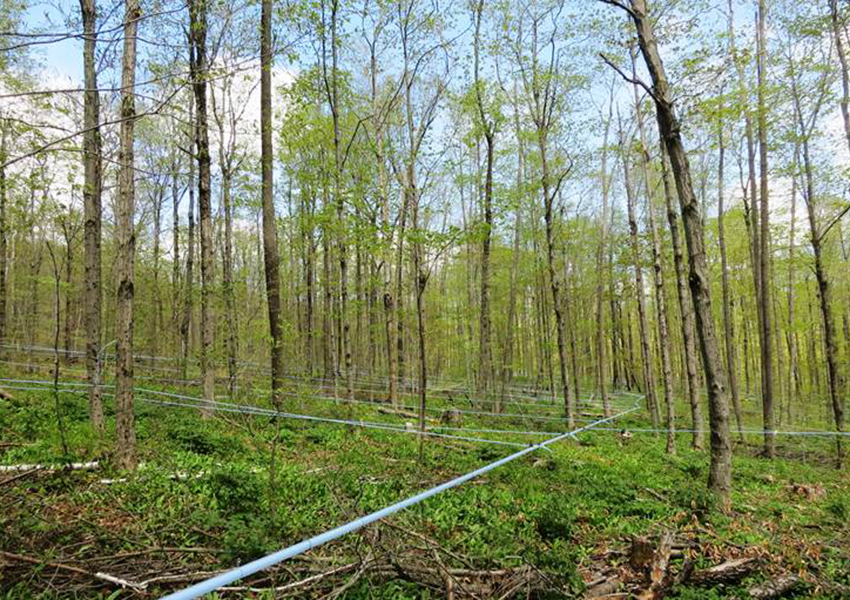Maple Syrup May Be Your New Cure All

The Sugarbush on Potter Mountain in Lanesborough, Mass. (where they tap the maple trees) photo by Paolo Cugnasca
According to the U.S. Department of Agriculture, Vermont leads all states in maple syrup production. In fact, in 2013, our neighbor to the north produced its largest maple crop in seventy years, with 1,320,000 gallons of maple syrup created. But new research suggests there may be more to maple syrup than its sweetness.
A new study out of McGill University in Canada found that concentrated extracts of the syrup “significantly repressed multiple drug resistance genes” and “efficiently reduced biofilm formation and increased the susceptibility of bacterial biofilms to antibiotics.” Basically, the pancake topper was able to fight bacteria.
Scientists studied the antimicrobial activity of a Phenolic-Rich Maple Syrup Extract (PRMSE) and found that not only did the sweet stuff fight bacteria on its own, it enhanced how antibiotics worked to kill bacteria—including infection-causing microbes such as E. coli.
The findings are impressive, especially due to how much antibiotics are overprescribed. And with more and more worry regarding drug-resistant bacteria, finding a natural product that can actually help an antibiotic do its job is an amazing find.
Fortunately, Massachusetts also produces large quantities of maple syrup—with most of it made west of Worcester—including newcomer, Mission Maple, from Feronia Forests, the owners of Ramblewild.
Does this mean we should all start gulping the sweet treat? Not exactly. Researchers used highly concentrated samples, but the scientists concluded that the natural syrup does warrant more research. “Overall, this study provides a proof-of-concept and starting point for investigating the molecular mechanism of the reported increase in bacterial antibiotic susceptibility in the presence of PRMSE,” the study said.


